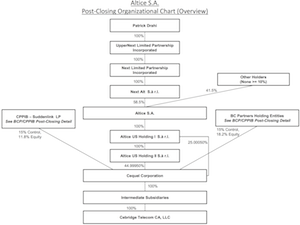Suddenlink tries to avoid going down the same regulatory review path as Comcast

Click for the full picture.
The purchase of Suddenlink Communications – the seventh largest cable operator in the U.S. and a significant video and Internet service provider in rural California – by a European company, Altice, is officially under review by the California Public Utilities Commission and the Federal Communications Commission.
As is typical with the initial applications, the companies are claiming there’s not much to worry about and approval should be quick and simple.… More


![By Sarah Connors (Blues vs Lightning-7473.jpg Uploaded by Carport) [CC BY 2.0 (https://creativecommons.org/licenses/by/2.0)], via Wikimedia Commons](https://www.tellusventure.com/images/2015/6/hockey_fight.jpg)

![By Cpl Jody Lee Smith [Public domain], via Wikimedia Commons](https://www.tellusventure.com/images/2015/5/out_of_bounds.jpg)


![By Smuconlaw. (Own work.) [CC BY-SA 4.0 (https://creativecommons.org/licenses/by-sa/4.0)], via Wikimedia Commons](https://www.tellusventure.com/images/2015/5/light_touch.jpg)
![By Ramon FVelasquez (Own work) [CC BY-SA 3.0 (https://creativecommons.org/licenses/by-sa/3.0)], via Wikimedia Commons](https://www.tellusventure.com/images/2015/5/clark_freeport.jpg)
